画像 keyword stuffing 339535-Keyword stuffing
Usually, there are three main types of Keyword Stuffing 1 Cramming Well, it is quite easy to tell a copywriter when he or she has finished an article and they have suddenly forgotten all of their keywords In order to recover this situation, the writer tries to cram 23 keywords in the last paragraph Thus, in the end, it makes a mess Keyword Stuffing A SEO technique used by Web designers to overload keywords onto a Web page so that search engines will read the page as being relevant in a Web search Because search engines scan Web pages for the words that are entered into the search criteria by the user, the more times a keyword appears on the Web page the more relevancy Keyword stuffing is when a brand fills or "stuffs" a webpage with with the same target term in hopes of ranking higher for that term in search engines While not as popular as it was a few years ago, it's still used by some brands to try to boost their search visibility

4 Signs You Might Be Keyword Stuffing
Keyword stuffing
Keyword stuffing-As the name suggests, keyword stuffing is filling up a page with the target keyword to manipulate its ranking on Google, Bing, and other search engines In most cases, bloggers, especially those who practice black hat SEO, use the same keyword over and over again The end result? For all you nonSEO nerds out there, keyword stuffing refers to excessively repeating the same word or phrase in Web content (and sometimes hidden in the HTML of the page) in an attempt to rank for that word or phrase in search engines The biggest problem with keyword stuffing is that it makes for poor user experience




The Dangers Of Seo Keyword Stuffing Business 2 Community
Keyword Stuffing Keyword stuffing can be defined as a process of writing a webpage, which is stuffed with a number of keywords in order to manipulate any website's organic ranking in Google and rest search results Filling in pages with more than required keywords and or failing to meet the keyword density might lead to negative userKeyword stuffing is when a brand fills or "stuff s " a web page with with the same target term in hopes of ranking higher for that term in search enginesKeyword stuffing is the practice of overloading a page with keywords, like "dog pet supplies," to manipulate that page's ranking in search results on Google, Bing, and other search engines View our Digital Services Even though keyword stuffing doesn't work anymore (it's now seen as a blackhat SEO tactic), many companies accidentally engage in keyword stuffing when
What Is Keyword Stuffing? Keyword stuffing is one of the oldest but still practiced forms of black hat SEO tactics It's the practice of overloading a web page with keywords to manipulate that page's rankings in the SERPs Although stuffing keywords doesn't work anymore, it's still considered an effective black hat SEO tacticKeyword stuffing checker With keyword density analyzer you can detect the density of words, bigrams and trigrams With quick navigation it's easy to switch between types of words Online text editor Online editor helps to rewrite phrases and sentences that include spam words Our algorithm each 2 seconds recalculates keyword density percentage
Keyword Stuffing When we use our focus or primary keyword repeatedly in our content, it is known as keyword stuffing Keyword Density The percentage of our content that consists the keyword is known as keyword density Like if you are using a keyword 10 times in a 1000 word post Then it will mean that you have a keyword density of 1% The term Keyword Stuffing is used to oppose to publish wellwritten content It is an ineffective method for improving or ranking or driving traffic to the website So try to end the keyword stuffing and get back to the basics Keyword stuffing is the act of repeating the same target keyword over and over to rank the page for the target term At one time, this was a popular black hat SEO tactic While it is not widely used in this way today, marketers should be aware of keyword stuffing so that they don't accidentally engage in it




Keyword Stuffing Can Kill Your Seo Avoid It With These Tips Alexa Blog




Explain Clients The Effects Of Using Keyword Stuffing As An Seo Tool
The term "Keyword stuffing" is the most conflicting in digital marketing People use and emphasize the term as per the convenience, which is not good to take further Most of the SEO services include keyword research and keyword density throughout the content to ensure there isn't keyword stuffingKeyword stuffing is the practice of inserting a large number of keywords into Web content and meta tag s in the attempt to artificially increase a page's ranking in search results and drive more traffic to the site A keyword is a significant term that is relevant to the content in question Keyword stuffing still works I keyword stuff the shit out of articles But, there's also a lot that goes into SEO than just onpage Backlinks, like you said, but also speed and user signals Get Links from AHREFS Top Page(s) Choose by RD(s) & PAGE TRAFFIC




How To Keep Keyword Density Natural And Avoid Keyword Stuffing




Why Is Keyword Stuffing A Big No No With Seo So Web Designs
Keyword stuffing generally refers to the excessive and manipulative use of keywords on a page with the aim of improving the page's ranking for that keyword without creating any benefit for the userThis technique worked until around the beginning of 00 It was also common for this tactic to include keywords as "hidden text" on the page keywords in white color were implemented on According to Google's guidelines, the definition of keyword stuffing is, in simple terms, the practice of excessively filling a web page with keywords with the ultimate goal of gaming the search giant's ranking system Additionally, a similar guideline on keyword stuffingWhat is Keyword Stuffing Keyword Stuffing is the action of flooding the content of a landing page with keywords repeated many times, in a conscious way, with the intention of improving its positioning Similarly, Keyword Stuffing includes the action of overemphasizing phrases and words through the use of bold type with the intention of better




Keyword Stuffing Seo Invoicebus Blog



What Is Keyword Stuffing Quora
Keyword stuffing is considered to be a spammy practice and a violation of Google's webmaster guidelines, and in response to such actions the search engine essentially lowers the rankings of the sites that break the rulesKeyword stuffing is an SEO technique where a site is loaded with keywords in an effort to improve a page's ranking in the search results Keywords are often repeated multiple times in the metadata, text or link texts of a pageKeyword stuffing results in a significantly higher keyword density, which is seen as spam search enginesKeyword stuffing is therefore considered a prohibited HubSpot refers to keyword stuffing as a black hat SEO technique since it's often done for the purpose of search engine manipulation They also call it a "practice against search engine guidelines," which it essentially is — whether it's intentional or not




Healthy Keyword Stuffing Technique To Improve Your Seo Marketing Agency Software Reportgarden




Keyword Stuffing Can Kill Your Seo Avoid It With These Tips Alexa Blog
What Is Keyword Stuffing And How To Avoid It The driving force for your blog is your readers, not SEO keywords or keyword stuffing One can hardly doubt, keywords have always been a powerful SEO force Throughout the history, search engines witnessed misuse of keywords in blog posts with the most unforgiving one being "keyword stuffing" Back in the old days, a webpage's ranking on Google's SERP could easily be manipulated by keyword stuffing Resume keyword stuffing is simply the act of unnaturally filling up a resume with many words in an effort to rank in or beat the applicant tracking system Resume keyword stuffing, much like it's brother, keyword stuffing, on the search engine optimization (SEO) side, is usually done to speak to the computer, with no regard for the human brain or eyeKeyword stuffing is the process of inserting as many keywords as possible into the content of a web page in hopes of optimising it for higher rankings in SERPs Types Of Keyword Stuffing There are a few different types/kinds of keyword stuffing All of them will land you in trouble



1




4 Signs You Might Be Keyword Stuffing
Keyword stuffing is a blackhat SEO technique Expect the worst in rankings if you use it In this article, I will walk you through the latest Search Engine recommendations regarding keyword density and how to avoid hurting your search rankings Keyword Stuffing in SEO "Keyword stuffing" is a black hat SEO practice It aims at filling a webpage with keywords in an attempt to manipulate a site's ranking in Google search results Often these keywords appear repetitively as aKeyword stuffing is when someone attempts to manipulate their position in the search results by concentrating relevant keywords Search engines can tell when keywords are abnormally distributed throughout the text or in a website's meta tags If the same keywords follow one another too closely, the search engine will downgrade the website and it will then appear lower down in




Keyword Stuffing Your Content Avoid It At All Costs
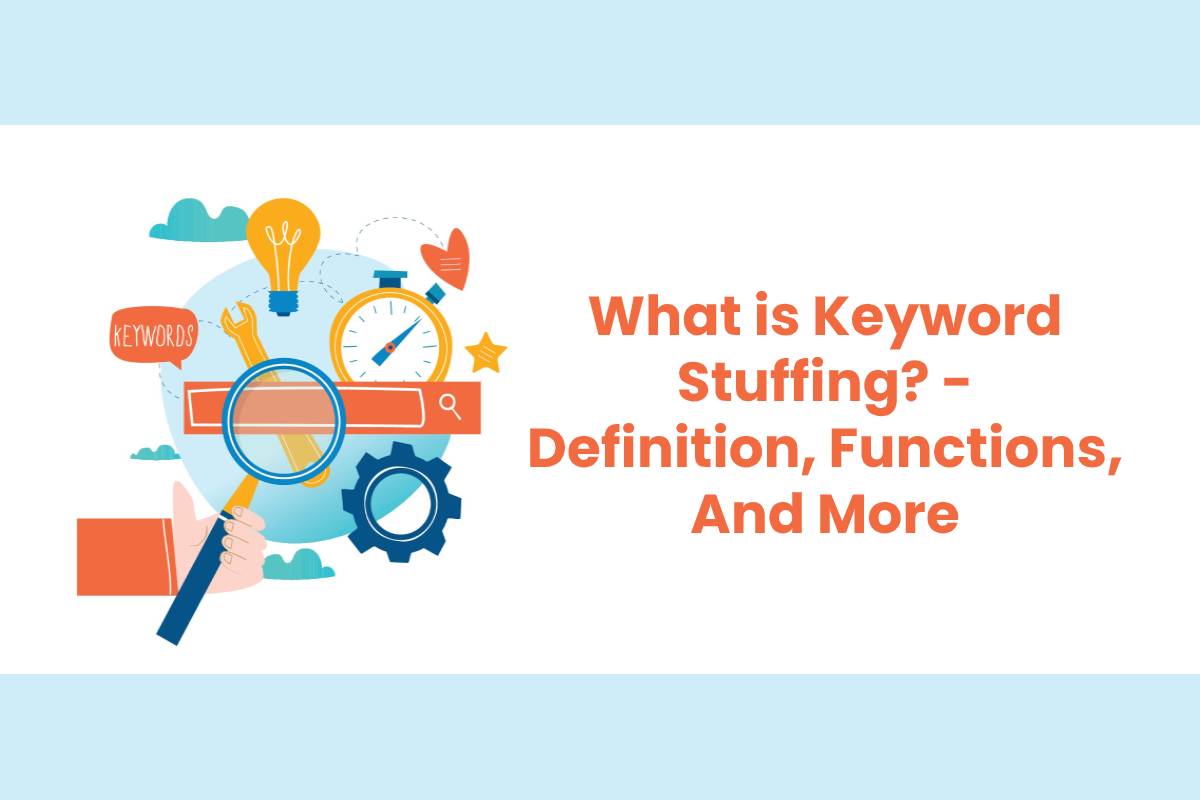



What Is Keyword Stuffing Definition Functions And More Ctr
Keyword stuffing is when you add a particular keyword as many times as possible to a web page to increase the keyword density Many brands use it unnaturally, without linking the keyword in a logical sequence with the hope of ranking higher in Google Some brands use hashtags to add their keywords and make it look more natural Keyword Stuffing Because keywords are such an important part of the substance of your website content, they require extra special attention You could even say that keyword usage is a "rite of passage" skill that takes time to acquire Keyword stuffing involves the constant repetition of the same terms throughout each sentence or paragraph It is an intentional process that tries to use terminology recognition to gain a better rank on Google Here's an example of this process to review "Keyword stuffing is a way to stuff keywords into each sentence to incorporate keyword
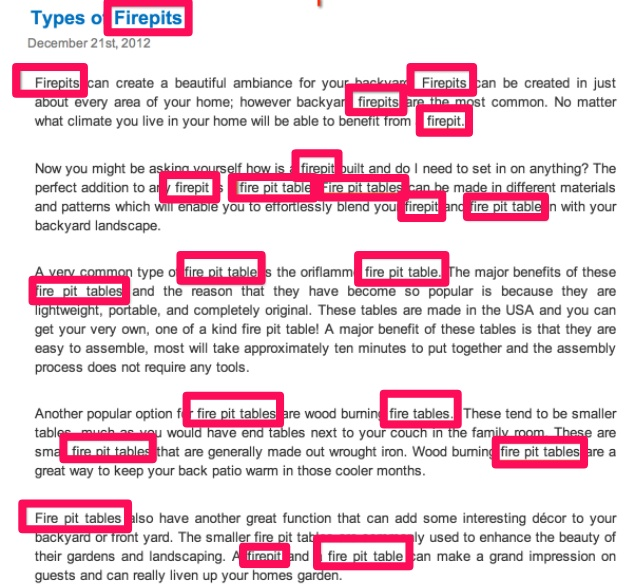



These 12 Website Mistakes Are Sabotaging Your Seo Strategy




The Importance Of Avoiding Keyword Stuffing
What Is Keyword Stuffing? For keyword stuffing you need to duplicate the word like 'bag' three or more times in the title That is keyword stuffing It's like saying something like 'Knit Hat, Brown Hat, Rolled Hat, Brimless Hat The word hat makes that title keyword stuffed Your title does not have that issueKeyword stuffing in simple terms is "the process of jamming web page content, webpage meta tags or backlink anchor text with keywords"That is, loading your site or article with keywords to improve the page's ranking in the search results
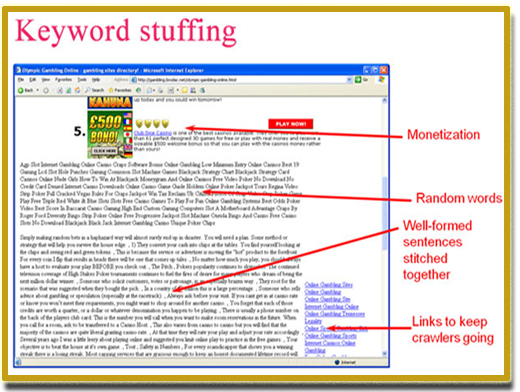



Keyword Stuffing And Irrelevant Keywords




Copywriting Intervention 5 Tips To Consider Before Keyword Stuffing Your Content
Irrelevant keywords "Keyword stuffing" refers to the practice of loading a webpage with keywords or numbers in an attempt to manipulate a site's This practice of using a large number of keywords in blogs, content, Meta or webpage just to trick search engine and rank good is known as keyword stuffing It is an artificial way of tricking Google and that is why it is considered a Black hat technique to do SEO The term "keyword stuffing" has been around since the early days of SEO It's used to describe a shady technique website owners adopt in order to manipulate their site's search ranking for a particular keyword, or set of keywords




What Is Keyword Stuffing Why It S Bad And How You Can Avoid It Youtube




Pass On Keyword Stuffing Improve Rankings Click Through Rate Keyword Stuffing Alternatives
Keyword stuffing is an unethical method of improving the visibility of a website, which is considered to be one of the Black Hat SEO practices It consists of loading a website with unnatural and excessive keywords appearing in content and the HTML code of a given page Keyword stuffing involves the repetition of phrases corresponding most closely to a websiteKeyword stuffing is the practice of cramming as many keywords as possible on a webpage, often in a way that feels forced and unnatural to the reader Typically, this was accomplished by including lengthy footers at the bottom of webpages, which would contain dozens – or even hundreds – of slight keyword variants of common search terms Joe, Without seeing your site it would be hard to say I do not think that would be considered keyword stuffing from what you mentioned "Keyword stuffing" refers to the practice of loading a webpage with keywords or numbers in an attempt to manipulate a site's ranking in Google search resultsOften these keywords appear in a list or group, or out of context (not as




Keyword Stuffing Can Kill Your Seo Avoid It With These Tips Alexa Blog




What Is Keyword Stuffing Has My Site Been Penalized For Keyword Stuffing Blue Corona
Keyword stuffing, or the practice of shoving as many seo keywords onto a page as physical possible, has long been the bane of SEO white hats everywhere There was a time when the method of stuffing worked as well on a webpage as it does in a turkey Back in the early years of search engines, one could easily manipulate a page's ranking on Google's SERP with keyword Keyword stuffing is a practice in which a keyword is repeated many times in a text Contrary to what many might believe, this puts the quality of the content into question Therefore, it is considered a Black Hat practice that is, an SEO/ASO misconduct Keyword stuffing andKeyword stuffing is a search engine optimization (SEO) technique, considered webspam or spamdexing, in which keywords are loaded into a web page's meta tags, visible content, or backlink anchor text in an attempt to gain an unfair rank advantage in search engines Keyword stuffing may lead to a website being temporarily or permanently banned or penalized on major search engines




6 Ways To Avoid Keyword Stuffing Your Blog S Content Seo Optimizers




What Is Google Keyword Stuffing In Seo How To Avoid 21
A few years ago SEO professionals were heavily using keyword stuffing techniques Those were the days when search engines were not smart enough They strongly depended on the exact match keywords on a page Google and other search engines used to rank those pages which had exact match keywords What is Keyword Stuffing?Keyword Stuffing is an exercise through which professionals try to stuff lots of keywords in the content and make its probability higher to visible over the search engine 10 years ago, keyword stuffing was one of the common practices that SEO professionals do, but nowadays, the strategy according to Google algorithms has been changed
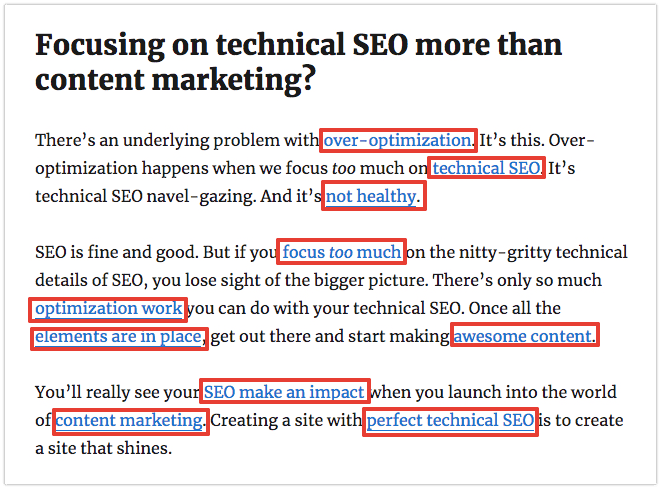



What Is Keyword Stuffing Why It Should Be Avoided




What Is Keyword Stuffing In Seo Marketing Definition Google Search Results Seo Keywords
Keyword stuffing might help get a few more calls back, but more often than not it will backfire and waste everyone's time Resume keyword optimization isn't about "tricking" or "beating" the system It's about working in sync with recruiters and hiring managers and the technology they use It's about making sure your skills and Keyword stuffing is the unethical practice to increase the keyword density of a post just by stuffing kew words or phrases such that the page ranks higher than others for the target keywords Good thing is that all search engines today are well equipped to understand when keywords are stuffed into content to artificially rank for a page or make Onceuponatime, keyword stuffing was a relatively successful SEO strategy However, today stuffing a keyword into your content too many times can actually knock the stuffing out of your search rankings, or even cause your content to be removed from search listings entirely Kim Kosaka explains Author Kim Kosaka




Keyword Stuffing Your Content Avoid It At All Costs




Keyword Stuffing Can Kill Your Seo Avoid It With These Tips Alexa Blog




Keyword Stuffing Google Step By Step Guide Youtube




5 Reasons Why Keyword Stuffing Is Bad For Your Website Fusion Seo




Seo Don Ts Things That Will Make Google Hate You




What Is Google Keyword Stuffing In Seo How To Avoid 21



1
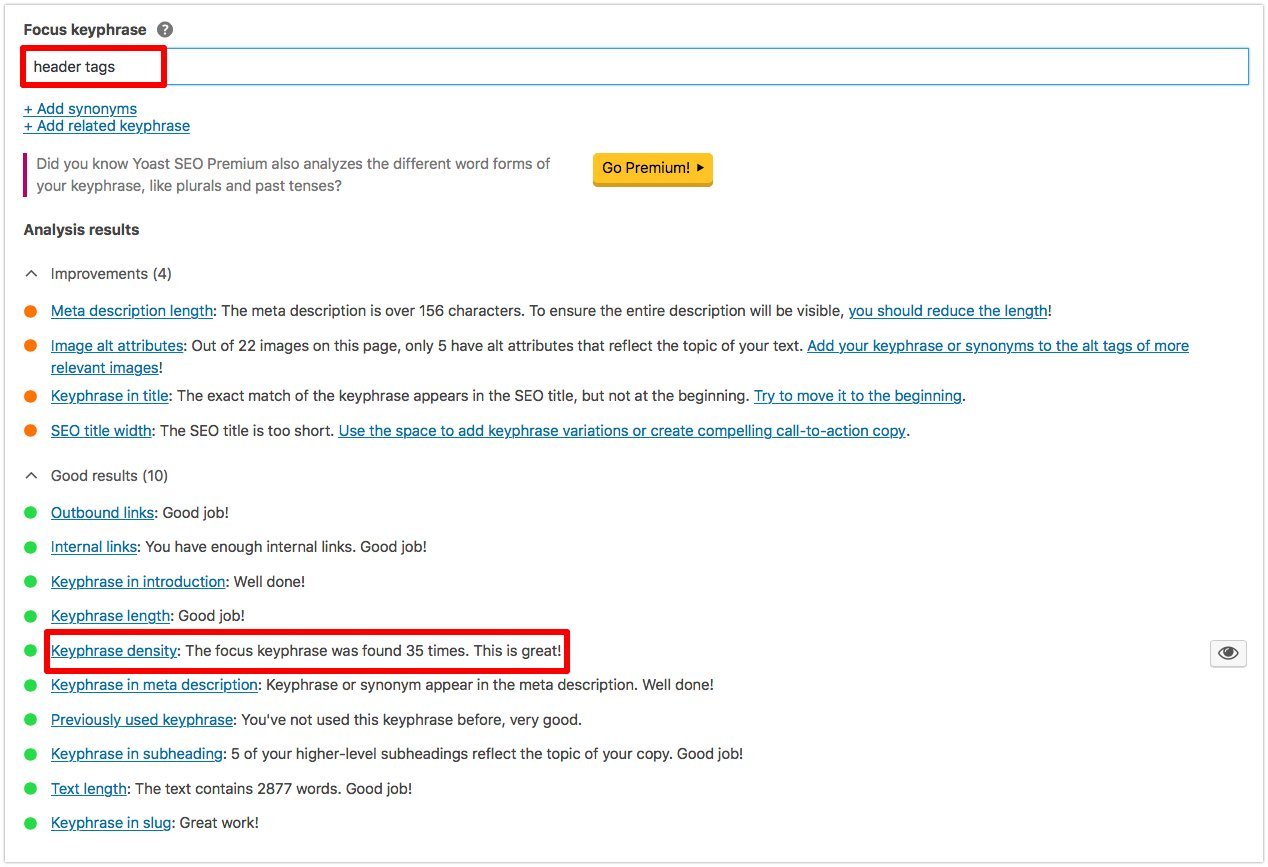



What Is Keyword Stuffing Why It Should Be Avoided




Keyword Stuffing 5 Ways To Avoid It Delante Blog




Healthy Keyword Stuffing Technique To Improve Your Seo Marketing Agency Software Reportgarden




Seo 101 How To Spot Keyword Stuffing And Protect Your Ranking Page




What Is Keyword Stuffing Why It Should Be Avoided




The Dangers Of Seo Keyword Stuffing Business 2 Community




Keyword Stuffing Doesn T Work Bigseo
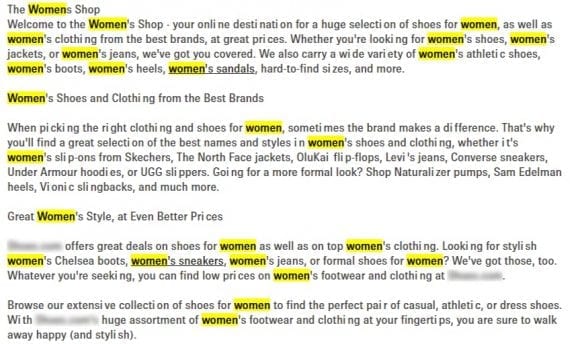



Seo 4 Signs Your Optimized Content Could Be Spam Practical Ecommerce




Keyword Stuffing Can Kill Your Seo Avoid It With These Tips Alexa Blog




How To Avoid Keyword Stuffing Codesquad Seo



Keyword Stuffing Is Hurting Your Pinterest Seo Love Family Health




Why Keyword Stuffing No Longer Works In Seo
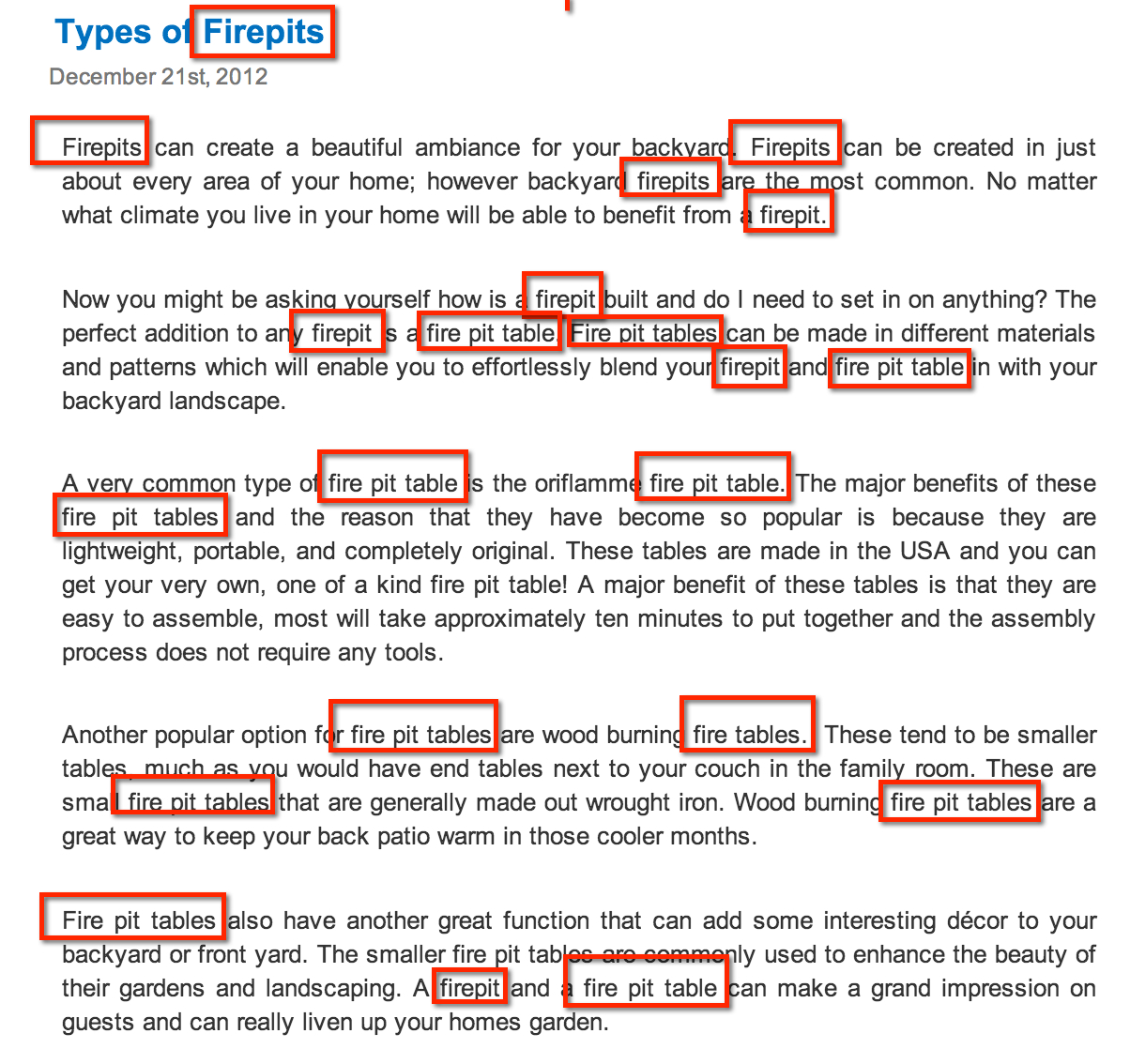



Keyword Stuffing What Is It And How Do You Avoid It




Healthy Keyword Stuffing Technique To Improve Your Seo Marketing Agency Software Reportgarden
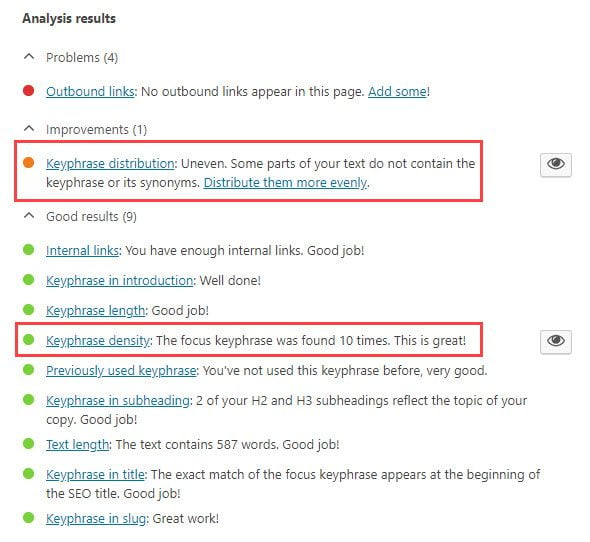



What Is Keyword Stuffing Why It S Bad And How You Can Avoid It Elegant Themes Blog
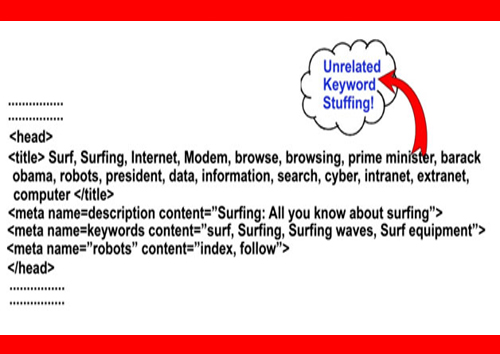



Meta Stacking And Title Spamming Discrete Keyword Stuffing




How To Incorporate Keywords Without Keyword Stuffing Imc Grupo




What Is Keyword Stuffing Seobility Wiki




The Real World Impact Of Keyword Stuffing In Google My Business



Avoid Keyword Stuffing Technically Easy




Why It S Essential To Avoid Keyword Stuffing In Modern Seo Ingenium Web



1
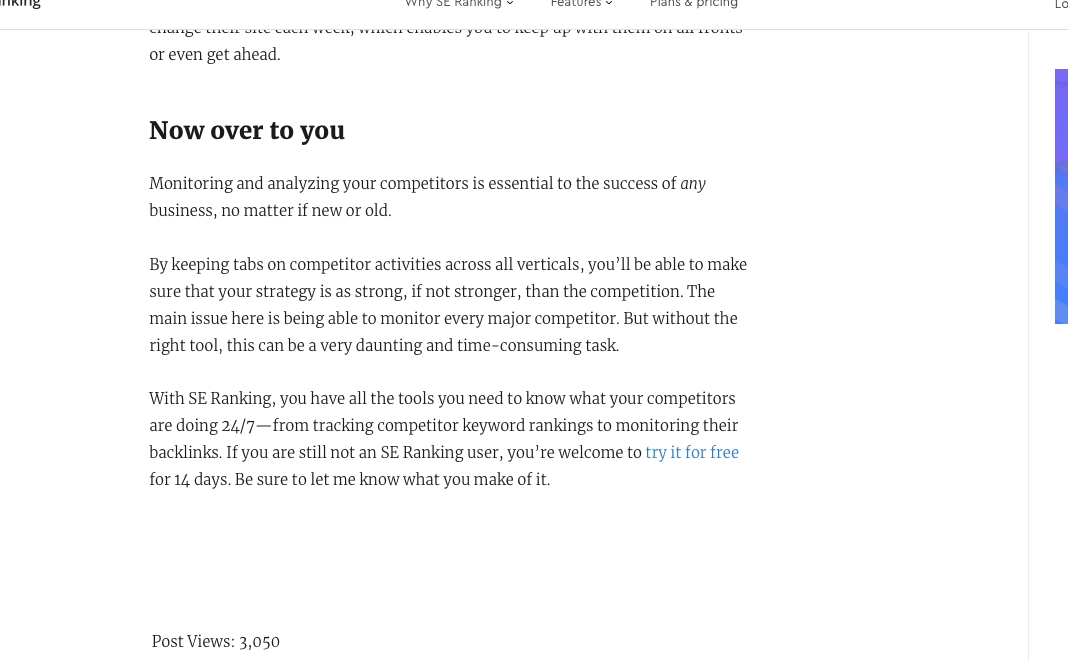



What Is Keyword Stuffing Why It Should Be Avoided



1




Keyword Stuffing Definition How To Avoid It Seo Glossary




Here S Why You Should Avoid Keyword Stuffing If You Want To Master Squarespace Seo Charlotte O Hara




What Is Keyword Stuffing Quora




What Is Keyword Stuffing And How Can It Kill Your Business Backlinks Com




Everything You Need To Know About Keyword Stuffing Sales Loves Marketing




Keyword Stuffing Business Process Management Seo Business Process




Keyword Stuffing In Your Resume Just Don T Do It Getfive




This Present Reality Effect Of Keyword Stuffing In Google My Business




Keyword Stuffing Your Content Avoid It At All Costs




Avoid Keyword Stuffing Urls And Exact Match Domains




Keyword Stuffing Visitor Analytics




Little Known Ways To Avoid Keyword Stuffing For Higher Rankings




Keyword Stuffing Doesn T Work Here S What Does Icsc




Keyword Stuffing Ryte Wiki The Digital Marketing Wiki




The Seo Practices You Didn T Know Were Hurting Your Website



Keyword Stuffing Will Not Cause Sites To Be Removed From Google




How To Avoid Keyword Stuffing Business 2 Community



What Is Keywords Stuffing In Seo
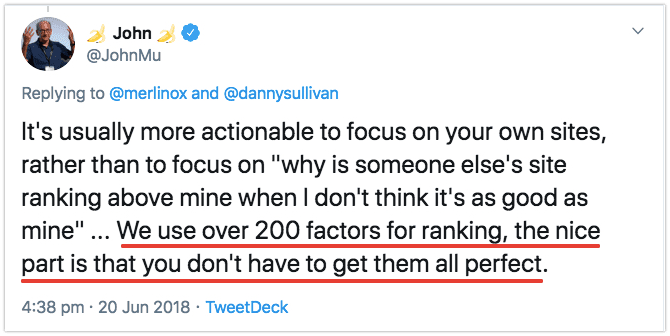



What Is Keyword Stuffing Why It Should Be Avoided




What Is Keyword Stuffing How To Avoid It Holistic Seo
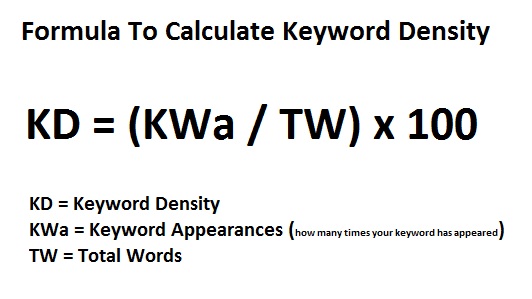



Keyword Stuffing What Is It And How Do You Avoid It
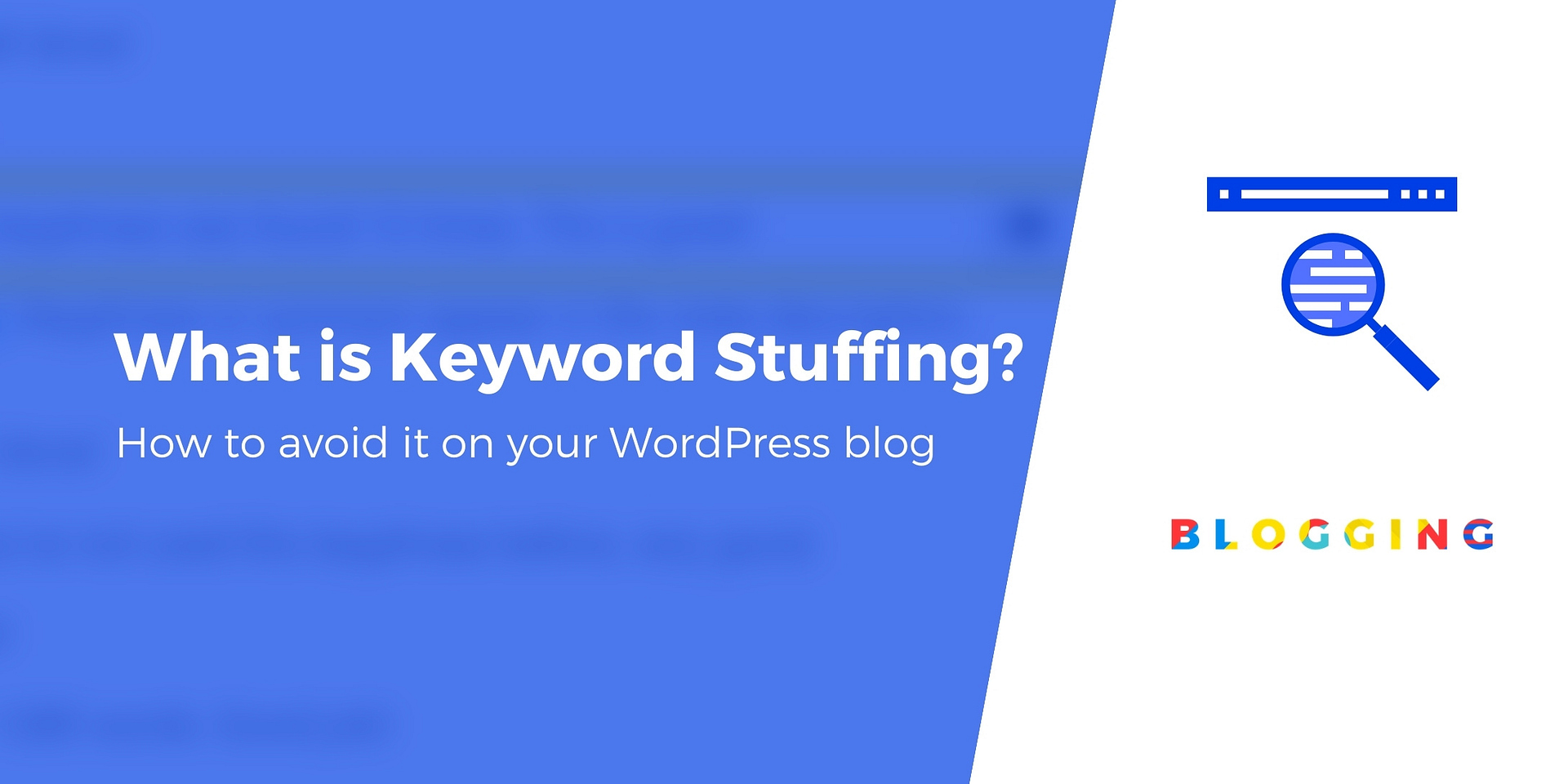



What Is Keyword Stuffing How To Use Keywords Properly




Quality Over Quantity The Balance Of Keyword Usage Single Grain




Seo Copywriting Tip Avoid Keyword Stuffing




How Much Can Keyword Stuffing Actually Hurt Your Seo Seo Co




Keyword Stuffing Is Bad For Seo How To Rank Better Without It Writebetter
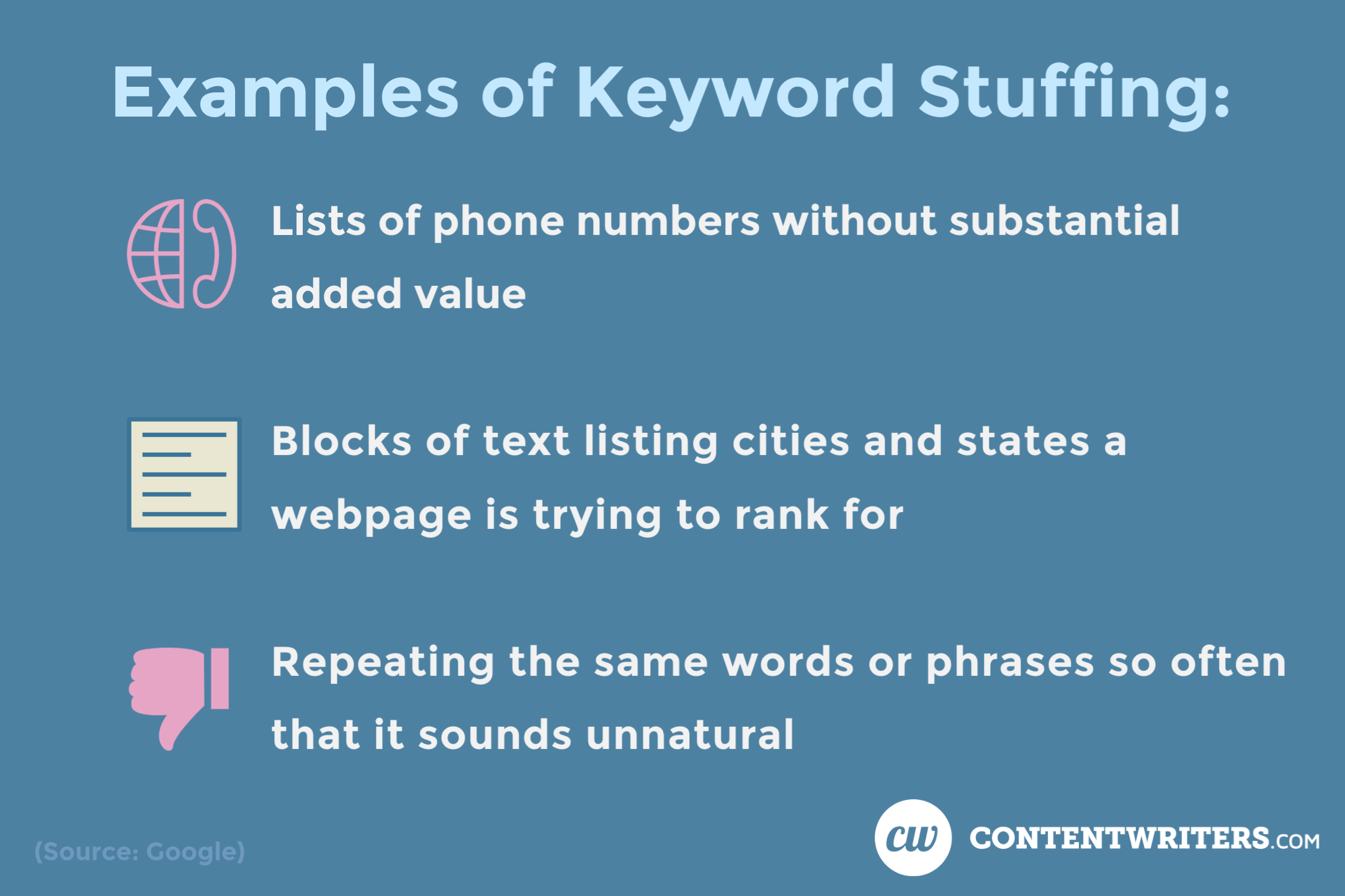



Why Keyword Stuffing Is So Bad But Still Prevalent
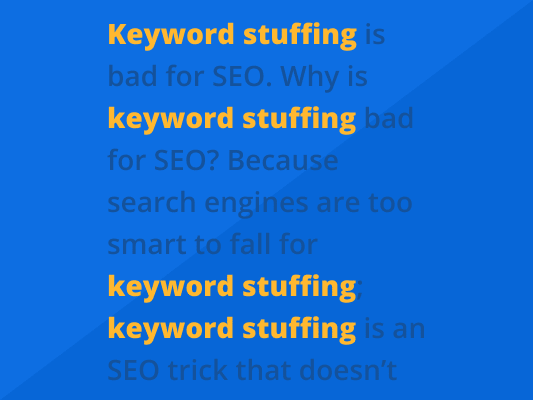



Keyword Stuffing Will Kill Your Seo How To Avoid It



What Is Keyword Stuffing Or Keyword Stuffing What Is It




Seo Enterprise Limited Seo Services Keyword Stuffing Facebook




Keyword Stuffing What It Is And How To Avoid It Yola




Seo 101 How To Spot Keyword Stuffing And Protect Your Ranking Page
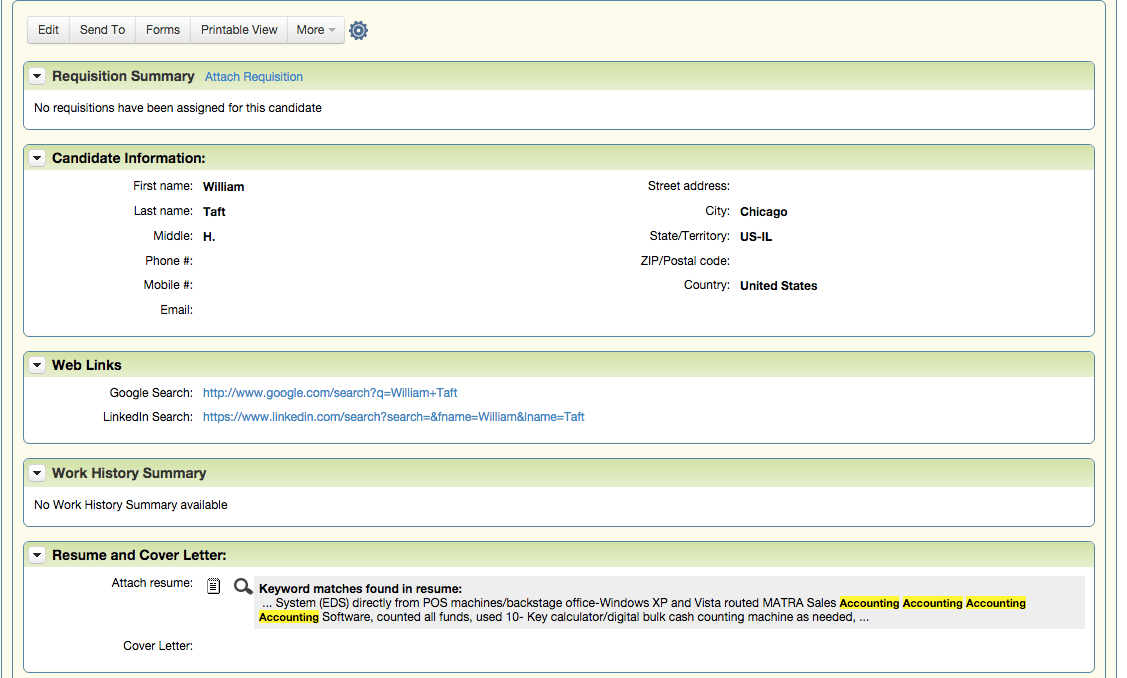



Are You Guilty Of Resume Keyword Stuffing Jobscan




Keyword Stuffing What Is It Actually Digitalgarg




Keyword Stuffing What Is It And 3 Free Tools To Measure It




What Is Keyword Stuffing And Why Should You Avoid It Ventura Copywriting




Keyword Stuffing Seo Com




How Much Can Keyword Stuffing Actually Hurt Your Seo Seo Co




What Is Google Keyword Stuffing In Seo How To Avoid 21




What Is Google Keyword Stuffing In Seo How To Avoid 21




Black Hat Seo Keyword Stuffing To Kill Your Site In Google




Top 6 Seo Tips To Make Google Happy And Improve Your Search Rankings
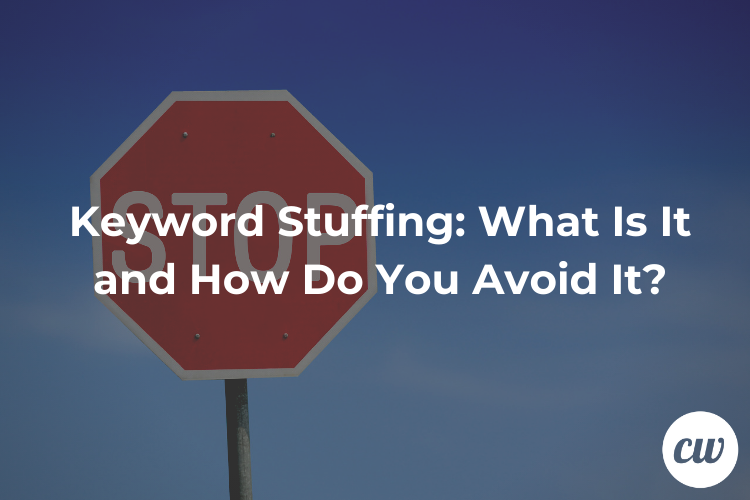



Keyword Stuffing What Is It And How Do You Avoid It




What Is Keyword Stuffing And How To Save Your Seo From It




What Is Keyword Stuffing 7 Tools To Check Keyword Stuffing




3 Ways To Avoid Accidentally Keyword Stuffing Your Content Seer Interactive




Keyword Stuffing Over Optimization And Its Google Penalties




Keyword Stuffing Is Web Content Writing Armenia




Google May Ignore Keyword Stuffing If Content Has Value


コメント
コメントを投稿